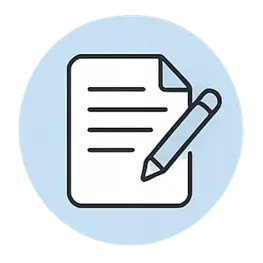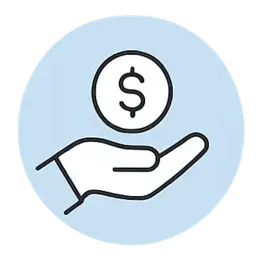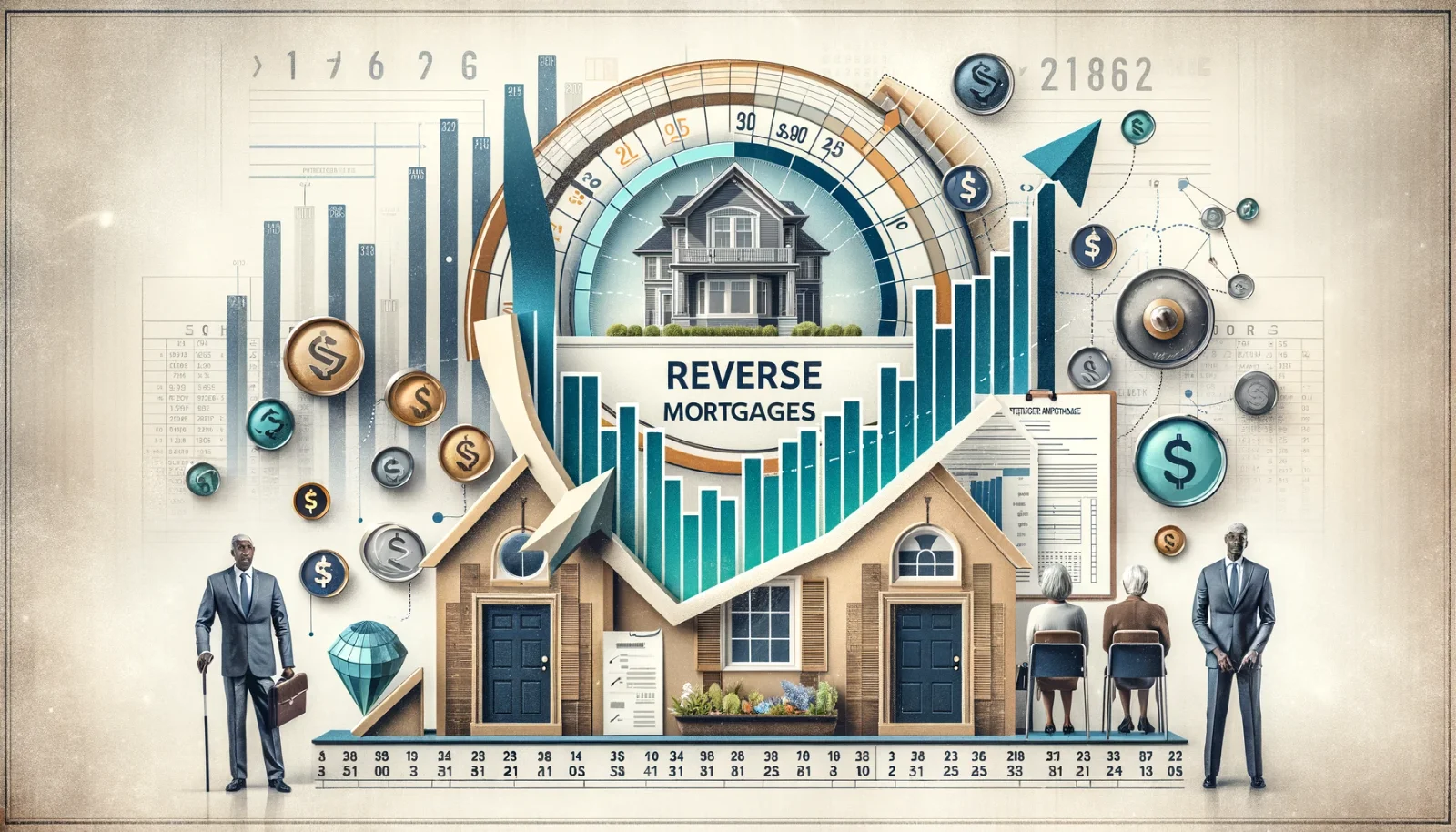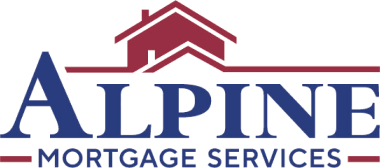Reverse Mortgage Loan - Reverse Mortgage Lender
Reverse mortgages are loans for homeowners 62+ that allow them to tap into their home equity without selling their home. These loans help seniors supplement their income, fund big projects or pay living expenses. Approved homeowners can use reverse mortgages and not have to pay them back until they leave their home permanently, so they can have peace of mind and security for themselves and their loved ones.
Key Takeaways
- The minimum age requirement for a reverse mortgage is 62 years.
- Reverse mortgages help seniors supplement income without losing homeownership.
- Homeowners must maintain their property taxes, insurance, and house upkeep.

What is a Reverse Mortgage?
A reverse mortgage is a loan for homeowners 62+ with a lot of equity in their home. It allows them to borrow against the value of their home and receive funds as a lump sum, fixed monthly payments or a line of credit. Unlike a traditional mortgage, the borrower doesn’t have to make monthly payments to the lender; instead the loan is repaid when the borrower moves out, sells the home or passes away.
How Does a Reverse Mortgage Work?
In a reverse mortgage the homeowner converts some of their equity into cash. This loan is unique because the homeowner retains title to their home and doesn’t have to make monthly payments. Instead, interest accrues on the loan amount and is added to the balance over time. The loan becomes due and payable when the borrower dies, moves out or sells the home.
These loans allow homeowners 62+ to borrow based on their home equity without making monthly payments. The lender pays the homeowner, reversing the traditional mortgage payment structure. However, the loan balance grows over time due to interest accrual which can increase debt. Borrowers also have to pay property taxes and homeowners insurance and the costs can be higher than other borrowing options.
A key aspect of a reverse mortgage is the loan balance increases over time due to monthly accrued interest. Moreover, reverse mortgage interest rates vary, affecting the overall cost of the loan. Costs may include application fees, insurance, origination fees, monthly service fees, closing costs and interest. Understanding these rates and fees helps borrowers make better financial decisions and avoid unexpected expenses.
Most reverse mortgages have a 3 day right to cancel after closing so there’s an added layer of protection. Along with careful consideration of reverse mortgage interest rates and understanding how the loan works, reverse mortgages can be a good financial tool for seniors.
What are the Different Payment Options on a Reverse Mortgage?
Reverse mortgages offer several payment options:
- Lump Sum: A single, large payment made at the beginning of the loan term.
- Monthly Payments (Annuity): Fixed payments received for as long as at least one borrower lives and continues to occupy the property as a principal residence.
- Term Payments: Fixed monthly payments received for a set period.
- Line of Credit: Funds that can be drawn upon on an as-needed basis, up to a certain limit.
- Combined Plan: A combination of monthly payments with a line of credit.
Reverse Mortgage Eligibility Requirements
To qualify for a reverse mortgage, applicants must meet several criteria:
- Age: Be at least 62 years old
- Equity: Have a significant amount of equity in their home
- Occupancy: Live in the property as their primary residence
- Counseling: Attend a session with a HUD-approved counselor
Applicants must live in the home as their primary residence for the duration of the reverse mortgage. Eligible properties includes single family homes, multi-unit properties up to 4 units, townhouses, condominiums, cooperatives (coops) and manufactured homes meeting HUD requirements built after June 1976.
Reverse mortgage borrowers are not required to make monthly mortgage payments but must maintain their homes costs such as property taxes, homeowners insurance, home maintenance costs and any applicable HOA fees. Additionally, before applying for the mortgage, applicants must complete a reverse mortgage counseling session with a HUD approved counselor to ensure an informed decision.
Different types of reverse mortgages, such as Home Equity Conversion Mortgages (HECMs), Reverse Mortgages for Purchase, Jumbo Reverse Mortgages and Single Purpose Reverse Mortgages have specific criteria. While income and credit scores are not evaluated for reverse mortgage qualifications, financial requirements including origination fees, mortgage insurance premiums and appraisal fees are added into the total loan amount.
Pros and Cons of a Reverse Mortgage
| Advantages | Disadvantages |
|---|---|
| Additional Income Provides a steady flow of income or a lump sum. |
Reduction in Equity The homeowners' equity is reduced. |
| No Monthly Mortgage Payments Borrowers don't have monthly mortgage payments. |
Fees and Interest These loans can have high upfront costs. |
| Flexible Use of Funds Can be used for various purposes. |
Impact on Heirs Less inheritance for the borrower's heirs. |
| Non-Recourse Loan Borrowers will never owe more than the home's value. |
Types of Reverse Mortgage Loans
Senior homeowners looking to tap into their home equity have several options. There are two primary types of reverse mortgages: Home Equity Conversion Mortgages (HECMs) and Proprietary Reverse Mortgages. Each type of reverse mortgage has distinct features, eligibility criteria, and costs. While both types serve the same purpose, their features and benefits cater to different needs and property values.
Home Equity Conversion Mortgage (HECM)
Home Equity Conversion Mortgages, or HECMs, are the most common reverse mortgage loans available. Insured by the Federal Housing Administration (FHA), HECMs have regulated guidelines and protections. These loans offer fixed rate and adjustable rate options to meet different financial needs.
HECMs can be obtained by any homeowner 62+ and have no income limits. In 2025 the lending limit for federally backed HECMs is $1,209,750. Borrowers must go through counseling before getting a HECM to understand the costs, payment options and responsibilities.
A big feature of HECMs is the payment options which include line of credit, monthly cash advances and lump sum payments. This flexibility allows seniors to choose how they want to receive their funds based on their situation. The main benefits of HECMs are flexible disbursement options and high borrowing limits and they require counseling to make sure borrowers understand the terms and risks.
Proprietary Jumbo Reverse Mortgage
A proprietary reverse mortgage, also known as a jumbo reverse mortgage, is a private loan not insured by the federal government. It's for homeowners with high value properties that exceed the HECM lending limit. While not federally backed, these reverse mortgage loans can offer access to more funds, making them a good option for those seeking significant equity access without FHA limits. The main benefits of jumbo reverse mortgages include flexible disbursement options and high borrowing limits.
As with HECMs, counseling is also required before applying for a proprietary reverse mortgage. This step ensures homeowners are well informed about their financial obligations including maintaining property taxes, insurance and essential property upkeep to prevent possible foreclosure.
Reverse Mortgage Application Process

Get Your Quote
Fill out our simple reverse form to see how much you could qualify for.

Free Consultation
Speak with a licensed advisor to review your options (no obligation).

Access Your Funds
Close your loan and receive your cash as a lump sum, monthly payments, or a line of credit.
Our reverse mortgage application process is simple and ensures that all homeowners are well informed before proceeding. On average, the entire reverse mortgage process can take anywhere from 30 to 45 days. It begins with initial consultation and mandatory counseling, followed by submitting the application, undergoing loan processing and closing. This structured process ensures homeowners are well informed and guided through each step.
Initial Consultation and Counseling. The first step in the reverse mortgage application is research and consultation with a local expert. Homeowners often start thinking about a reverse mortgage application months before they actually apply. They spend several months gathering information and then one to two months meeting with experts, reviewing loan documents and costs. A mandatory counseling session with a HUD approved agency provides educational information about the loan product, including eligibility, obligations, alternatives and impact on estate and heirs. At the end of this session homeowners receive a signed HECM Counseling Certificate which is required to move on to the next step.
Submitting the Application. After the counseling session the borrower can submit the reverse mortgage application to a reverse mortgage lender. An FHA approved appraiser will do an appraisal to determine the value of the property and the lender will do a title search to verify ownership and resolve any issues like liens or bankruptcies. No credit score is required for a reverse mortgage but a credit report is needed to evaluate the borrower’s financial health. All of these are important to qualify and move forward with the loan.
Loan Processing and Closing. Once everything is clear to close a final closing date is set. During this phase all final documents are signed and then there is a 3 day “right of rescission” period where the applicant can cancel the loan without penalty. This is an important buffer to give the borrower time to think about their decision. After this period the title company will disburse the funds from the reverse mortgage which can be received as a lump sum, monthly payments, line of credit or a combination. Throughout the reverse mortgage application process advisors will work to get each step done as quickly as possible for the homeowner.

Reverse Mortgage Calculator
With our reverse mortgage calculator, borrowers can estimate the potential lump sum proceeds they can receive based on various factors such as home value, age, and current interest rates.
This calculator helps in understanding how much equity can be accessed to help with financial planning. It provides a clearer picture of the potential loan structure before entering the application process. Using this comprehensive tool not only provides an accurate reverse mortgage amount calculation but also assists in making informed decisions tailored to one's financial needs and goals.
Reverse Mortgage Rates
Knowing reverse mortgage rates and interest is key to understanding reverse mortgage costs and making smart decisions. These loans have fixed or adjustable rates, each with its own impact on the loan balance and overall planning.
Fixed rate reverse mortgage loans are about half a percent higher than adjustable rate reverse mortgage loans. Jumbo reverse mortgage rates vary and are higher than proprietary reverse mortgage rates. Your choice depends on your situation and preferences.
Borrowers should consider the following reverse mortgage costs:
- Origination fees: $6,000 max, paid to the lender.
- Upfront mortgage insurance premium: 2.0% of the outstanding mortgage balance.
- Housing counseling costs: vary based on agency.
- Ongoing costs: interest, servicing fees, annual mortgage insurance premium, property charges such as homeowners insurance, and property taxes.
How to Choose the Best Reverse Mortgage Lender
Choosing the best reverse mortgage company means researching the company’s reputation, understanding their fees and loan terms and being aware of the scams and aggressive marketing tactics used by some reverse mortgage companies. Reading reverse mortgage company reviews is key to finding a company that fits your financial situation. Consider the following when choosing a company:
- Reputation and Reviews: Research companies thoroughly, read customer reviews and complaints to see the level of service and reliability. Reviews on the Better Business Bureau and Google give you insight into customer experience and the company’s professionalism.
- Loan Options and Terms: Different lenders may offer varying terms and fees. Compare these to find the best fit for your financial situation.
- Transparency: Good lenders provide clear, understandable information about the costs and terms of the loan. Avoid lenders who do not provide detailed information upfront.

Reverse Mortgage Counseling
Reverse mortgage counseling is a requirement by the U.S. Department of Housing and Urban Development (HUD) for homeowners who want a Home Equity Conversion Mortgage (HECM). This process ensures that before you sign a loan application, you get educated on the financial responsibilities of a reverse mortgage.
Approved reverse mortgage counselors charge “reasonable and customary” fees, usually around $125 or more. HUD does allow a waiver for homeowners below 200% of the federal poverty level, those in mortgage delinquency, default or homelessness. Note that counseling doesn’t guarantee HECM approval and you may need additional sessions if you don’t fully understand the financial implications.
To qualify for a HECM, homeowners must be at least 62 years old, own their homes, possess the financial resources to cover costs like property taxes and insurance, and complete the approved reverse mortgage counseling.
The HECM Protocol Chapter 1 lays out comprehensive guidelines covering information such as:
- General information on reverse mortgage counseling
- Roles and responsibilities of counselors
- Methods of delivery for counseling
- Details on counseling fees
- Providing HUD-approved agency information to clients
Specific objectives of this mandatory counseling include educating clients about reverse mortgages, their implications, and determining if they are fitting for their financial situations. Topics of discussion in every counseling session range from client needs, reverse mortgage features, responsibilities, costs, financial/tax implications, to alternatives and warnings about potential fraud and elder abuse.
According to the HECM Protocol, counselors must provide handouts to clients and comply with HUD’s quality control. Some activities are prohibited, such as involvement in sales transactions or requiring additional products for the HECM loan. Counselors must also detect and prevent fraud and elder abuse. They must be aware of clients’ disabilities or language/cultural issues and make sure they understand reverse mortgages before issuing a counseling certificate. Clients must show they understand the implications, financial impact and residency requirements of reverse mortgages to get their counseling certificate.
Reverse mortgage advisory services and reverse mortgage educational resources are integral in assisting seniors to make informed financial decisions about their home equity options.
Our Reverse Mortgage Specialist

Kathleen Romeo
NMLS #85239
With over 20 years of experience helping seniors access their home equity, Kathleen is dedicated to providing clear, honest advice to help you achieve your financial goals in retirement.
What Our Clients Say
"Working with Kathleen was a blessing. We were able to pay off our bills and can finally relax in retirement without worrying about money. We should have done this years ago!"
– Mary C., Paramus, NJ
"I was nervous about a reverse mortgage, but Alpine Mortgage answered all of my questions and gave me confidence. Now I receive a monthly payment that helps with our fixed income."
– Sara M., Brooklyn, NY
Ready to Enjoy a More Secure Retirement?
Reverse Mortgage Resources
- Reverse Mortgage Calculator
- Why Consider a Reverse Mortgage?
- How to Get a Reverse Mortgage with Bad Credit
- Is Now the Time to Get a Reverse Mortgage?
- Advantages & Disadvantages of a Reverse Mortgage
Reverse Mortgage FAQs
It might. Proceeds from a reverse mortgage could impact eligibility for means-tested programs such as Medicaid. However, it generally does not affect Social Security or Medicare benefits.
Yes, alternatives include home equity loans, home equity lines of credit, and downsizing to a more affordable home.
Yes, you can still qualify for a reverse mortgage even if you have an existing traditional mortgage. However, you must use the funds from the reverse mortgage to pay off the existing mortgage. This is because the reverse mortgage requires that you hold no other liens on the property.
The money received from a reverse mortgage is typically considered loan advances and not taxable income. This means you won't have to pay income tax on the amounts you receive. However, it's always a good idea to consult with a tax advisor to understand your specific situation.
Interest on a reverse mortgage accumulates over the life of the loan and is compounded. The interest is not paid out of pocket but is added to the loan balance each month. Therefore, the amount you owe grows over time as interest on the loan and fees continue to accumulate.
If you sell your home, the reverse mortgage must be repaid at the time of sale. Typically, the proceeds from the sale of the home are used to repay the reverse mortgage, along with any accumulated interest and fees. Any remaining equity belongs to you or your heirs.
Yes, a reverse mortgage can be refinanced if it benefits the borrower. Reasons for refinancing may include decreasing interest rates, increasing home value (leading to more available equity), or the introduction of new reverse mortgage products that might offer better terms.
Reverse mortgage interest rates can vary and may be either fixed or adjustable. The rate affects the total loan balance and can impact how much equity remains in the home after repayment. Contact us for a customized quote.
Reverse mortgages are "non-recourse" loans, which means that you or your heirs will never owe more than the home is worth at the time the loan is repaid. If the balance of the reverse mortgage exceeds the home's value, the loss is typically covered by federal insurance if your reverse mortgage is a federally insured Home Equity Conversion Mortgage (HECM).
With a Reverse Mortgage, there is no monthly payment, so interest accrues on the loan balance over time. This means the total amount owed increases, which can reduce the equity remaining in the home when it is sold or transferred to heirs.
Borrowers should consider how the loan balance and accrued interest will affect the equity left for their heirs. It's important to discuss these implications with family members and to include the Reverse Mortgage in your estate planning.
Get a Reverse Quote
"*" indicates required fields
